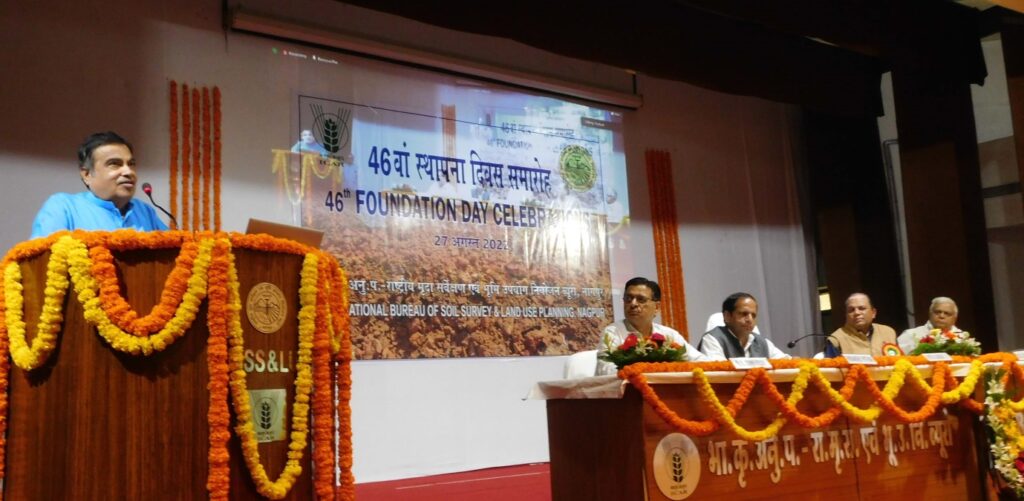“We need to take our agricultural growth rate to at least 22%. Then we will have Aatma Nirbhar villages, smart villages. This will thus benefit villages, farmers and the poor; new jobs, schools, hospitals, agro-based industries and irrigation facilities will come up in rural areas, transforming our villages,” said Union Minister for Road Transport and Highways Nitin Gadkari.
Addressing the 46th Foundation Day celebrations of National Bureau of Soil and Land Use Planning at Nagpur, he said that we need to improve the productivity of the agriculture sector, on which the majority of the population depends.
He observed that per acre agricultural output in India is very low in comparison to world standards. Our fruit quality too is not good enough as per international standards. The Minister explained that the challenge is how to make right and appropriate knowledge available to the last man in an effective manner.
“We should take knowledge on soil, seeds, land, water, choice of fertilizers and best agriculture practices, to farmers in villages using regional language and using mediums such as short films and through local agricultural colleges and universities. This will help increase agricultural productivity. Our economy is based on water, land, forest and animals. Hence, when the fruits of research are utilized by the last person, then knowledge and research become really meaningful,” he added.
Gadkari suggested that the private sector has to be roped in when the capacities of government labs are not enough. “Since we were facing shortage of orange saplings, I suggested that private nurseries can be roped in to meet the supply gap, provided they follow rules suggested by ICAR”.
The Minister highlighted the need for adopting new technologies and research practices. He narrated how the Ministry of Road Transport and Highways is making concrete roads without using aggregate, using the technique of soil stabilization. This technique was recently used in Andaman, he informed. He gave another example of organic carbon.



